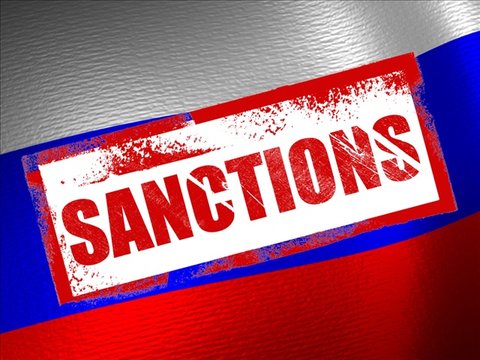Putin sanctions bite again as debt plans obscured

By Bloomberg
Fresh European Union and U.S. sanctions and the threat of Russian retaliation are impeding the Finance Ministry's plan to sell more ruble bonds by the end of 2014 than it did in the first eight months of the year.
The ruble sank to a record low today against the dollar after the EU published its expanded penalties list over Ukraine, and the U.S. said it will "deepen and broaden" its measures. Russia's 10-year yields rose seven basis points yesterday to the highest in a week, while the rate on similar-maturity Brazilian debt dropped five basis points.
The 28-member bloc pushed through the measures even as a one-week cease-fire in eastern Ukraine held, stoking concern Russia will fight back with penalties of its own after imposing a food-import ban last month. After eight canceled weekly auctions in a row, there's interest from banks for the 230 billion rubles ($6 billion) of local currency bonds, called OFZs, the ministry aims to sell by year-end, Svetlana Nikitina, an aide to the Finance Minister, said by phone yesterday.
"Nobody is avoiding OFZs on economic grounds, we're avoiding them on grounds of fears about sanctions and capital controls," Paul McNamara, a money manager who oversees $6.5 billion in debt at GAM U.K. Ltd. in London, said by e-mail yesterday. "Putin is quite clearly happy to inflict short-term damage on Russian interests, why would bondholders be spared?"
Bond Freeze
Government 10-year yields have climbed 147 basis points since Putin's incursion into Ukraine's Crimea region, the biggest increase among 23 emerging markets tracked by Bloomberg. Russia has sold 124 billion rubles in bond auctions and a further 100 billion rubles in off-market placements this year.
The latest EU sanctions target 15 companies and 24 people, with oil producers OAO Rosneft and OAO Gazprom Neft, as well as oil pipeline operator OAO Transneft, barred from selling securities and obtaining financing of more than 30 days. U.S. measures will target financial, energy, and defense industries, President Barack Obama said in a statement yesterday.
Russia has managed to put off selling debt as borrowing costs soared in part because the price of Brent crude jumped to a nine-month high of $115.06 a barrel in June, helping cushion revenue of the world's largest energy exporter. The weaker ruble also boosted local-currency earnings, including tax inflows, since oil proceeds are denominated in dollars.
'Dangerous Territory'
Oil's retreat below $100 a barrel this week took it into "dangerous territory" for Russia, according to Vladimir Miklashevsky, a strategist at Danske Bank A/S in Helsinki.
Russia has tackled a cash shortage among banks as the crisis in Ukraine choked off access to global markets. The central bank added 2 trillion rubles to a program to help meet refinancing needs, while the government said last month it would bolster VTB Group's capital by 200 billion rubles. VTB, OAO Sberbank, the nation's largest, and other state-controlled lenders, were named under sanctions in July.
Bank Rossii "could provide more funding to local banks possibly obliged to buy OFZs," Miklashevsky said by e-mail yesterday. That would constitute "printing money in a sophisticated way," he said.
The new sanctions are raising pressure on the central bank to keep raising interest rates to stem the ruble's slide. While 15 of 26 economists surveyed by Bloomberg expect the Bank of Russia will leave the one-week auction rate at 8 percent today, 10 forecast an increase to 8.5 percent and one predicted a quarter-point tightening. The ruble extended this year's second- biggest emerging market decline today, dropping 0.4 percent to 37.6390 per dollar at 11:23 a.m. in Moscow.
"The fact that further sanctions are being imposed on Russia after a ceasefire in eastern Ukraine came into force shows how little confidence there is that the conflict will be resolved," Nicholas Spiro, managing director of Spiro Sovereign Strategy in London, said yesterday.
Here we are to serve you with news right now. It does not cost much, but worth your attention.
Choose to support open, independent, quality journalism and subscribe on a monthly basis.
By subscribing to our online newspaper, you can have full digital access to all news, analysis, and much more.
You can also follow AzerNEWS on Twitter @AzerNewsAz or Facebook @AzerNewsNewspaper
Thank you!
